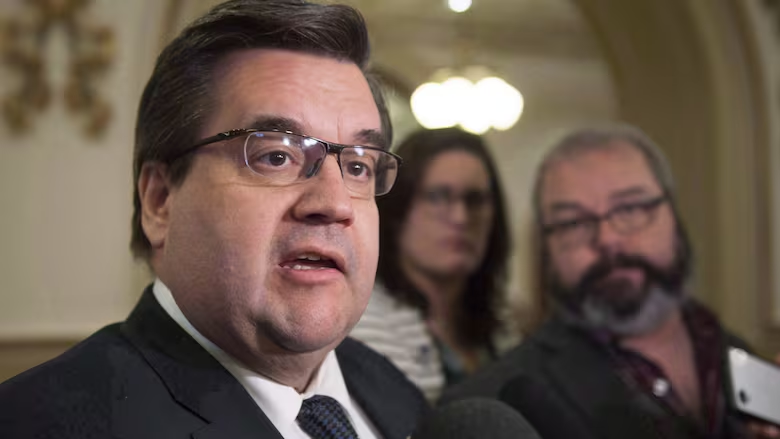Coderre stands by Montreal police chief, won't have 'public lynching'
'There is a process and we'll verify all the facts,' mayor says as journalist spying scandal grows

Montreal Mayor Denis Coderre is defiantly standing by his police chief after more revelations surfaced involving the surveillance of two La Presse journalists by the city's police department.
Coderre told reporters that he will await the results of the provincial inquiry into the matter before taking action.
Removing police Chief Philippe Pichet before knowing all the facts would amount to a "public lynching," he told reporters Sunday.
Coderre said he recognizes the importance of the "freedom of the press" but said it's also "important to respect the rule of law."
"There is a process and we'll verify all the facts," he said.
In the meantime, Coderre said the city's Public Security Commission, which oversees the police force, would meet behind closed doors to discuss the issue and, ultimately, produce a report that will be made public.
The city's inspector general, Denis Gallant, will also investigate with the help of a soon-to-be appointed judge.
Gallant will be doing the work outside of his mandate as inspector general, a position which doesn't have the power to oversee the police department, Coderre said.
The comments come as the mayor faces mounting pressure to remove Pichet from his post.
Coderre hand-picked him to run the department last year.
Province could 'not be more concerned'
Quebec Public Security Minister Martin Coiteux issued a statement Saturday evening calling on the City of Montreal and its police department to take action, saying he "could not be more concerned."
"The authorities of the Montreal police department and the City of Montreal have to display the utmost transparency in this case and take actions to restore the confidence of Montrealers in their institutions," he said.
Both Projet Montréal, the Opposition at city hall, and the Parti Québécois, the Opposition in Quebec City, repeated their calls for Pichet to be suspended while an investigation into the matter is conducted.
Projet Montréal Coun. Alex Norris said Coderre's response has been inadequate and his "tooth and nail" defence of Pichet misguided.
'Oral communications' sought
La Presse reported Saturday that Montreal police sought, and obtained, a warrant that allowed them to listen to the "private conversations" of two journalists — Patrick Lagacé and Vincent Larouche — with police officers who were under investigation.
A copy of a warrant request obtained by Radio-Canada shows the Montreal police wanted access to the "oral communications and telecommunications" of Lagacé and Larouche.
Earlier this week, La Presse revealed that Lagacé had been the target of 24 warrants that allowed Montreal police to track incoming and outgoing calls to his phone. Those warrants were limited to metadata about the calls, including phone numbers and GPS locations, but did not cover their content.

Pichet acknowledged in a statement Saturday that two police officers were under electronic surveillance and conversations between the officers and the La Presse journalists might have been heard as a result.
He said the journalists themselves were not the target of surveillance operations and claimed the warrant included measures to ensure the tap conformed to Supreme Court of Canada jurisprudence for protecting journalists' sources.
The Quebec government announced last Thursday it will hold a commission of inquiry into police surveillance of journalists.
The announcement came after Quebec provincial police admitted this week they had spied on six journalists, including three Radio-Canada reporters, in 2013.